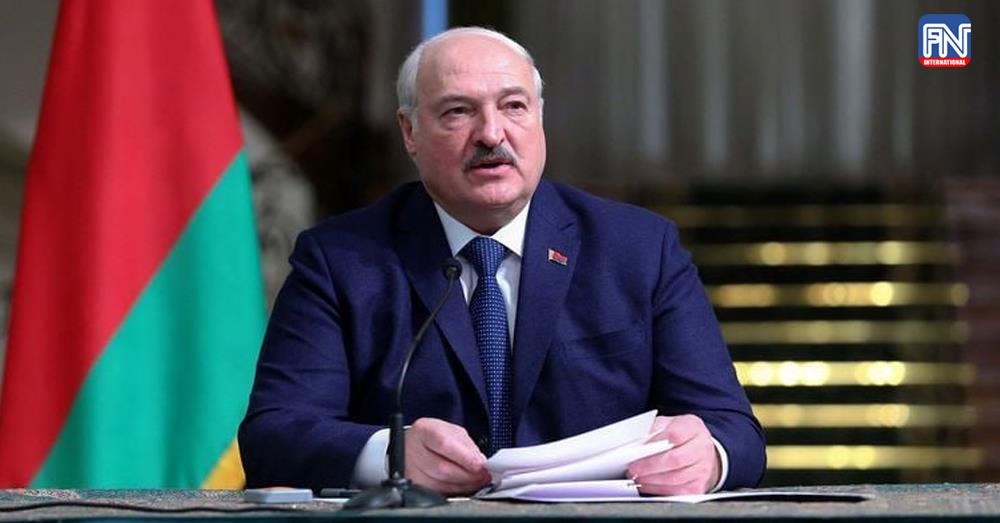MINSK, July 6 (Reuters) - Belarusian President Alexander Lukashenko said on Thursday that he would have a veto over any use of the tactical nuclear weapons that Russia is stationing on his territory, and goaded the West's spies for missing the transport of the warheads.
President Vladimir Putin, who rules the world's biggest nuclear power, announced a plan in March to deploy tactical nuclear weapons in Belarus, Moscow's first move of such warheads outside Russia since the 1991 fall of the Soviet Union.
Putin said the deployment of the weapons did not contravene the nuclear Non-Proliferation Treaty of 1968 as the weapons would be controlled by Russia just as U.S. nuclear weapons in Europe are formally controlled by the United States.
But Lukashenko, who dismissed suggestions that he was Europe's last dictator, repeatedly told reporters that he would have a veto in any use of the Russian tactical nuclear weapons - over which Putin has the ultimate decision-making power.
"Control is carried out perfectly, jointly by Belarusians and Russians," Lukashenko said. "If Russia ever decided to use nuclear weapons, I am sure that it would consult with its closest ally - with us."
"If I or our people or our state does not want something - then it means it will not happen."
Lukashenko told reporters no one wanted to attack the United States or European powers with the nuclear weapons, saying they were exclusively defensive.
The Federation of American Scientists said in a research note last month that it had yet to find visual evidence that conclusively indicated the presence of an active nuclear weapons facility on the territory of Belarus.
Its top nuclear researcher, Hans Kristensen, said that the U.S. Central Intelligence Agency had picked up a visit earlier this year by a senior Russian officer to a facility at Osipovichi for a potential upgrade to nuclear weapons storage.
Lukashenko said a "number of nuclear warheads have been moved to the territory of Belarus".
He said the Russian nuclear weapons, which are controlled by the Russian defence ministry's 12th Main Directorate (known as 12th GUMO), had not been transported by land.
"I'll tell you a damning fact: We did not move nuclear warheads by land," he said, adding that the transport of the nuclear weapons had gone unnoticed by the Central Intelligence Agency, by Britain's Secret Intelligence Service (known as MI6) or by German intelligence.
"Neither you nor the United States, nor MI6, nor in Germany - have noticed this anywhere. That was the plan."
Reuters had no way of verifying the secret assessments of spy agencies.
The United States has criticised Putin's nuclear deployment but has said it has no intention of altering its posture on strategic nuclear weapons and also that it has not seen any signs Russia is preparing to use a nuclear weapon.
Putin has said not said which "tactical" nuclear warheads have been deployed, though Lukashenko has said the warheads are three times more powerful than the atomic bombs the United States dropped on the Japanese cities of Hiroshima and Nagasaki in August 1945.
The Hiroshima bomb, made from highly enriched uranium-235, was about 16 kilotons (equivalent to 16,000 tonnes of TNT), while the Nagasaki bomb, made from plutonium-239, was about 21 kilotons, according to the World Nuclear Association.
Lukashenko cautioned that any aggression against Belarus would result in a split-second response.
"If you make any aggression against Belarus, the answer will be instant. The targets have been defined," he said.





